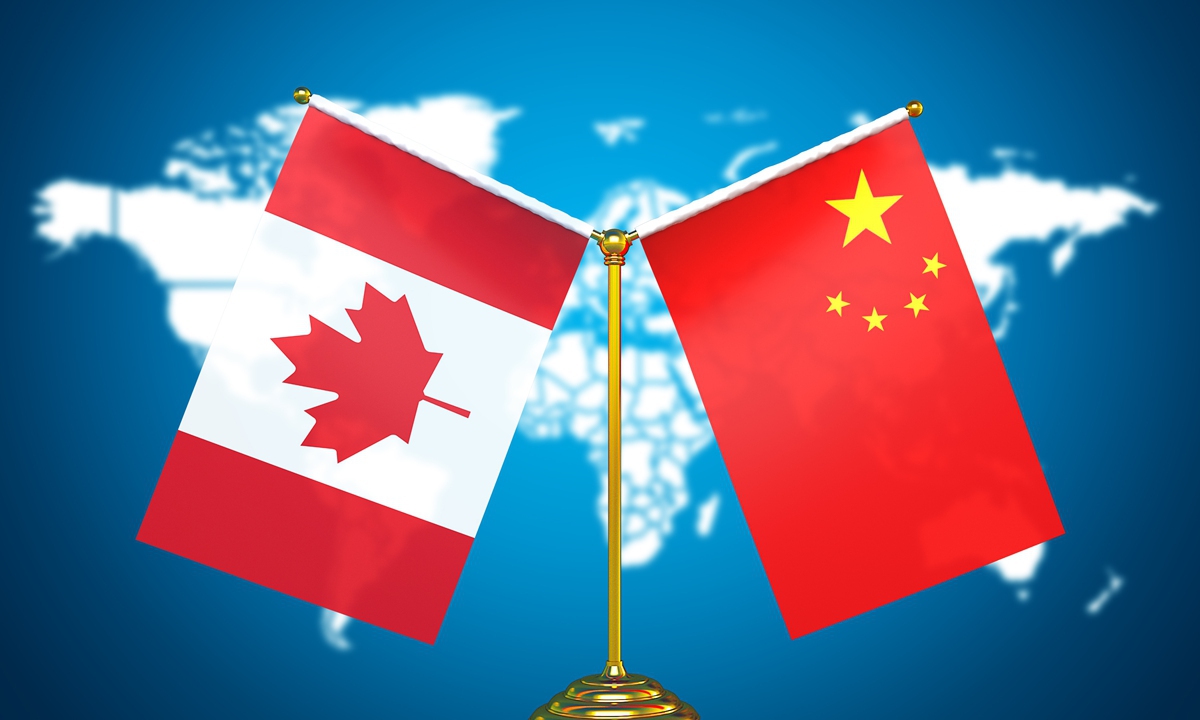
China and Canada Photo: VCG
The China-Canada economic relationship remains on rocky ground with many obstacles emerging in 2022, dashing the hope of many for improving bilateral ties following the safe return of Huawei executive Meng Wanzhou in late September last year.Some recent polls also offer an ominous sign. A total of 61 percent of the 2,005 Canadian respondents surveyed said they want Canada to trade less with China, according to the latest Angus Reid Institute poll released on Monday. The representation of such voices in the broader Canadian society is unclear.
Still, it is regrettable to see voices in Canada hoping to water down economic ties with its second-largest trading partner. At a time when Chinese manufacturing is deeply integrated into the global supply chains, if Canadians reject Chinese goods, they will probably end up finding many supermarket shelves looking very bare, and whatever remained would most likely cost more.
Some Canadians may not realize how much they depend on Chinese products, but Canadian exporters certainly have a much clearer idea of the importance of the massive Chinese market and what it means for them if the bilateral relationship remains icy.
To a certain extent, the voices calling for less trade with China is a microcosm of the impasse faced by China-Canada relations. With Canadian political leaders increasingly adopting anti-China rhetoric pushed by the US, anti-China sentiment within Canada is also evidently growing. In that sense, the biggest obstacle to China-Canada ties is meddling by the US.
Canada appears to be too deeply influenced by the US that it cannot pursue independent foreign policy toward China that conforms to the interests of Canada and its people. If anything, the signs of Washington's interference can be seen everywhere in Canadian officials' rhetoric about China. In late December, Canadian Prime Minister Justin Trudeau said in an interview that like-minded countries should "show a united front" against China's increasingly "coercive diplomacy."
Meanwhile, Canada is reportedly set to pursue a foreign investment protection agreement with the island of Taiwan, according to a statement from Canadian International Trade Minister Mary Ng's office on Monday. Under the current China-Canada tensions, the news could easily spark concerns about whether Canada is taking the cue from the US in playing the "Taiwan card." If Canada were to play the "Taiwan card" to undermine China's national interests, the impact on bilateral trade would be disastrous.
There are no inherent conflict of interests between China and Canada. As both countries are so far away from each other, China does not pose any threat to Canada's security, nor is there any real competition for power between the two countries. And given the huge need for mutually beneficial economic cooperation between the two sides, it is baffling to see Canada to be so hostile toward China over some ideological difference.
The China-Canada relationship is currently at a crossroads and the ball is in Canada's court to improve or further undermine bilateral ties. What it needs to recognize is that China is an indispensable partner in terms of both trade and economic cooperation and addressing global challenges, including climate change, sustainable development and digitalization.
Whether Canada can seize the opportunity to repair relationship with China or continues to drag bilateral ties into a downward spiral will test the political wisdom of the Canadian government.



